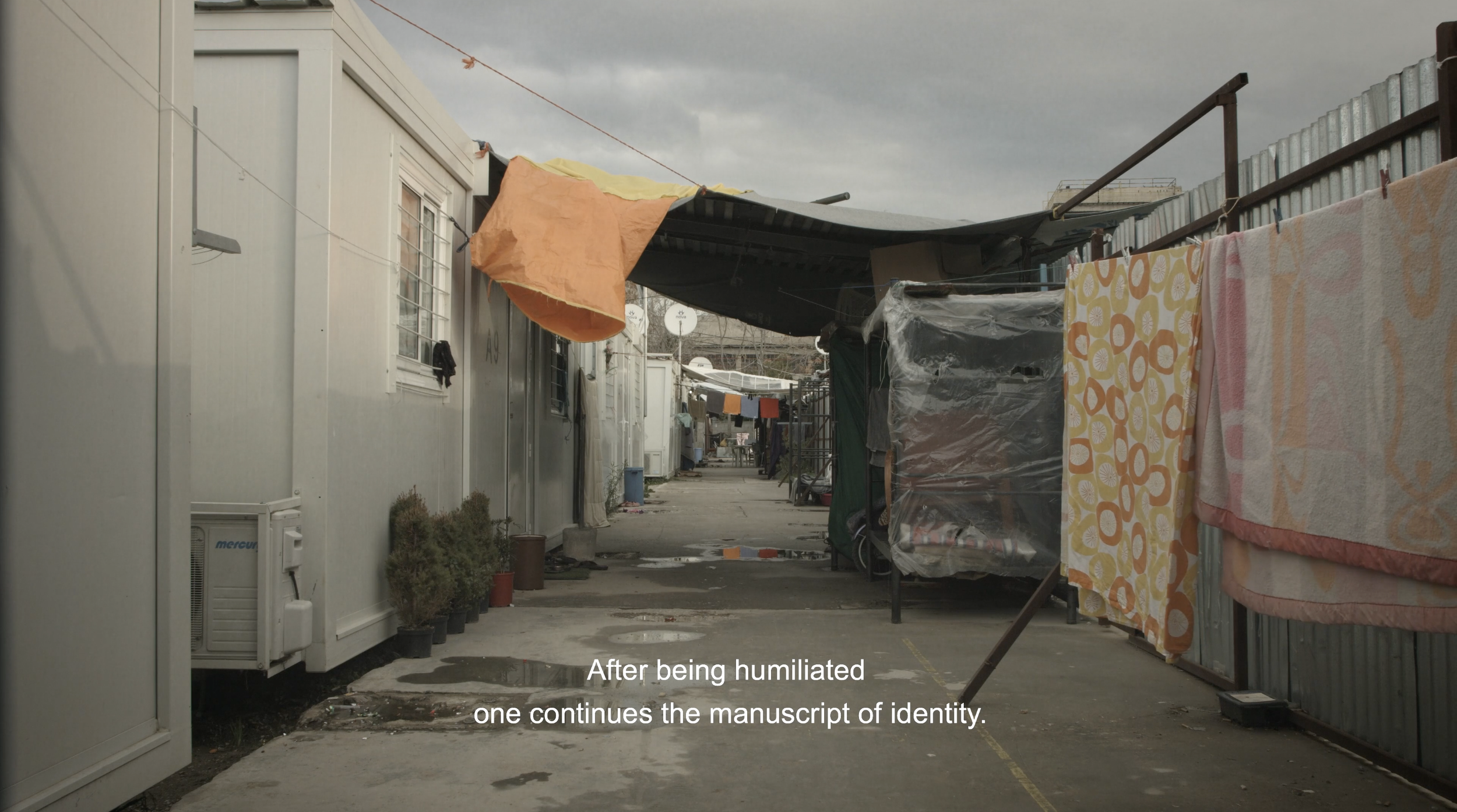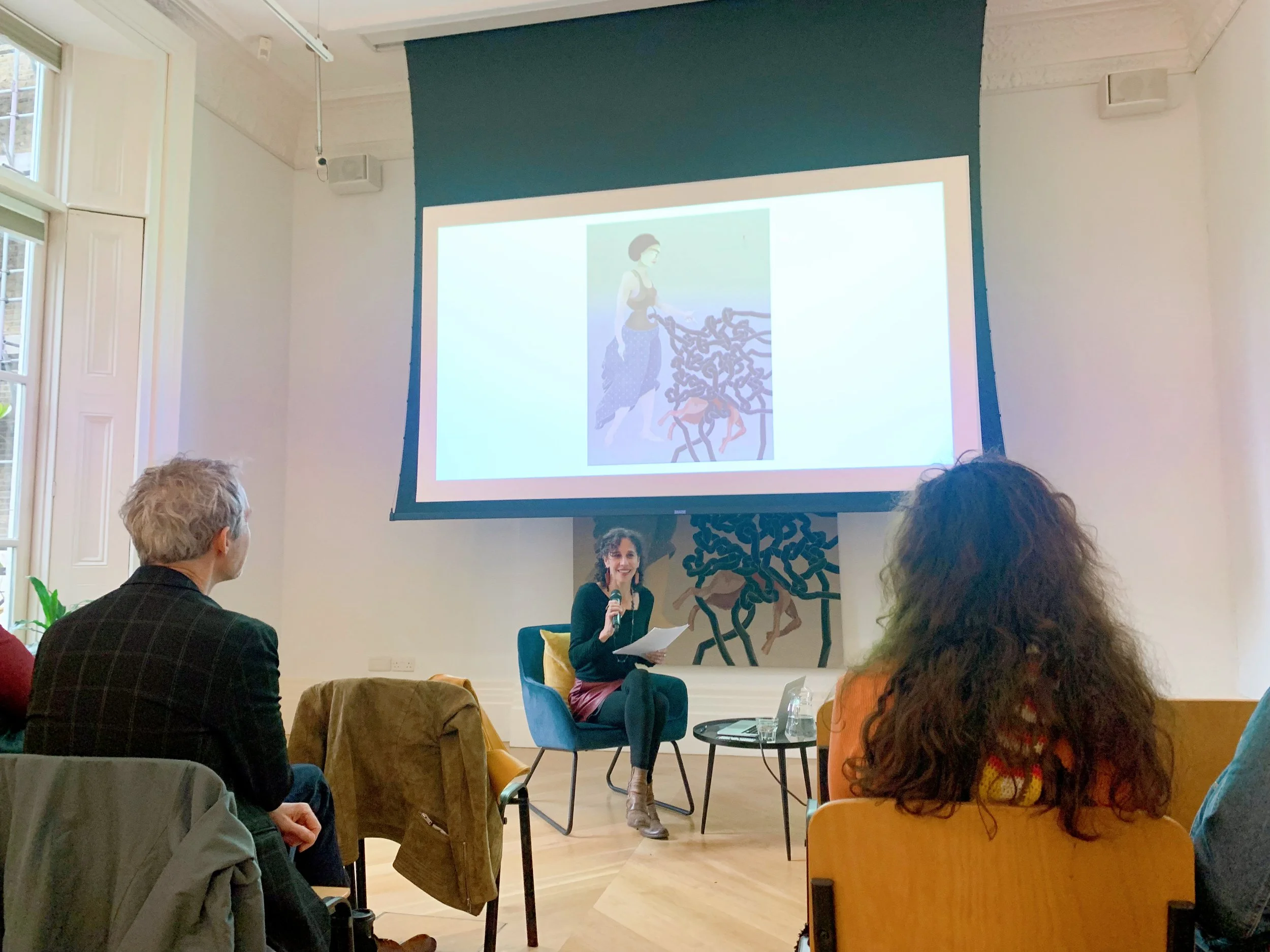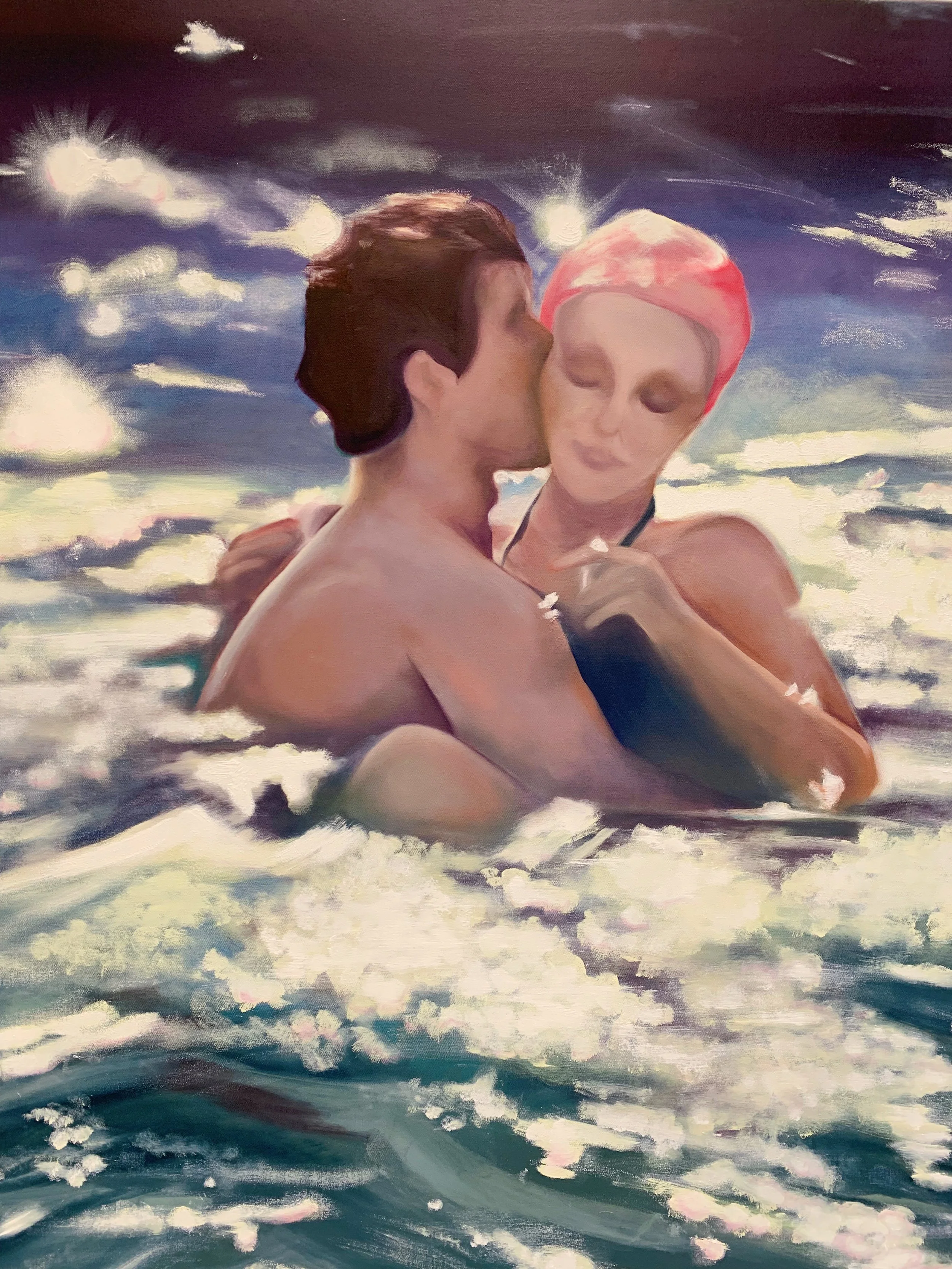
24: To break your cheat with a bid stone.
I suppose the internet is not fast enough to render the beauty of the wind moving through the grass in my letter to July.
Perhaps Ina Blom will elaborate on this in her forthcoming lecture at the ICA titled Strange Weather: Machine Climates and the Fabrication of Sensing which is described as follows:
Ina Blom presents on ‘intramachinic weather systems’ in the works of Ed Atkins and Florian Hecker.
In Blom’s research, she discusses two cases of what she calls ‘intramachinic weather systems’, as found in the very different works of video artist Ed Atkins and composer/sound artist Florian Hecker. In a number of Atkins's computer-generated works, the worlds he creates are dominated by phenomena that we may identify as meteorological even though they have little in common with what we call weather in ‘our’ world. In Florian Hecker's computer music, the synthesis and resynthesis of sound at the granular level produces effects and processes with complexity which might well be described in meteorological or climatic terms. Both cases allow us to discuss what is at stake for environmental thought when intensive engagement with computational systems produces a sense of parallel or ‘unthought’ worlds – worlds that are not the effects of simulation or representation, but of properly machinic affordances. Ultimately, Blom wants to point to the ways in which the production of machine-based atmospherics in these works rehearses questions of synthesis and abstraction that were key to late 19th century aesthetic and industrial modernity.
I plan to hide from the queens jubilee festivities today by seeing a double feature at the ICA, the first a Portuguese film called VISÕES DO IMPÉRIO about the violence of colonialism told through found photographs and then another Portuguese film called Amor Fati about couples ‘who believe that only the company of their other halves makes them complete.’
Next week I’ll be at the ICA 5 times, for Ina Blom’s talk, a screening of Michelangelo Frammartino’s Il Buco with a Q+A and 3 day conference on the choreographic organized by Edgar Schmitz, who is advising me on my dissertation, with a schedule as follows:
Programme Friday 10 June
6 – 7:30pm Around Apart Under Behind Through Ahead: A Partial Lexicon of Spatial Dysfunction by Vlatka Horvat and invited guests Edwina Ashton, Augusto Corrieri, Critical Interruptions, Harun Morrison, Rebecca Moss, Lara Pawson, and Florian Roithmayr
7:30 – 7:45pm Break
7:45 – 8pm Welcoming Remarks by Murat Adash, Ofri Cnaani and Edgar Schmitz
8 – 9:30pm André Lepecki and Irit Rogoff in conversation
Programme Saturday 11 June
12 – 1pm Corpo/Realities I: Towards Documentary Choreography, Ofri Cnaani in conversation with Samaneh Moafi and Arkadi Zaides
1 – 1:30pm Break
1:30 – 2:30pm Corpo/Realities II: The Right to Bodily Integrity, Ofri Cnaani in conversation with Sandra Noeth and Sarah Keenan
2:30 – 3pm Break
3 – 6pm Reversible Figures by Murat Adash and Tavi Meraud with Georgia Sagri, Matthias Sperling, Starhawk and Soap Bubble
6 – 7pm Break
7 – 10pm Practical Encyclopaedia by Lenio Kaklea with Lou Forster, Filipa Ramos and Daniela Perazzo
Programme Sunday 12 June
12 – 12:45pm How Does Smoke Find its Destination? by Raimundas Malašauskas
12:45 – 1:30pm This is an artwork / you are a community / this is for you / you are my material / this is a prison / leave when you want. A performance of keyon gaskin
1:30 – 2pm Break
2 – 4:30pm First Set of Entries toward a Glossary of Choreographic Materialities by D. Graham Burnett, Martin Hargreaves, Edgar Schmitz and Noemie Solomon
4:30 – 5pm Break
5 – 6pm Corpo/Realities III: AI temporalities and Indigenous AI, Ofri Cnaani in conversation with Stamatia Portanova and Jason Edward Lewis
6 – 6:30pm Break
6:30 – 8pm Episode 2 by SERAFINE1369
I’m still within the worlds of the films arranged and presented by Ektoras Arkomanis in his Migrations of New Cinema project, from where the banner image of this chapter from one his films is borrowed. In a bizarre twist of fate I found myself in some crit sessions of The MA Artists' Film and Moving Image program facilitated by the contemporary image maker Maeve Brennan, who I had met at the evening of Migrations screening. I had just finished a crit for my work and met a friend from the moving image cohort for lunch, and they kindly invited me to join for the afternoon. This practice of mutually considering the work of an artist is fascinating to me. This space for sharing and co-consideration is one of the central reasons I returned to school and what I understand to be something like a vocational calling.
The moderation and composition of the group can produce quite a range of possibilities, apprehended prismatically and diffusing and recombining over time with new valences. Maeve’s gentle disposition, thoughtful commentary, and open questions were inspiring. A an artist named Yixuan Lyu, for whom english was a second language showed a work that dealt with the limitations of language, rendering their concerns through wondrous speculative images, fragments of intimate conversations and humorous textual asides. There were found images of bubble rings—a curious hydrodynamic worth a quick google— that came to stand in for the limitations of language, delicately holding a shimmering of meaning which scatters near the surface and the immense, immeasurable pressure of the waters holding together its fugitive provision. A caption flashed momentarily that read ‘to break your cheat with a bid stone.’ and blossomed into a polyphony of possible meanings in my mind. With the space to wonder aloud together, we learned it was an erroneous rendering of a Chinese proverb.
For my crit I shared a trailer that I had made as an invitation to reply to some questions Agnes Denes had proposed for an exhibition she was doing with an art organization that describes themselves as ‘…an art & culture platform with purpose. We stop the clock on traditional media spaces, amplifying the world's finest art and culture to generate a new, #CIRCAECONOMY.’
We were to choose a question from a list and reply with a video under 90 seconds in length and some text. I chose What do you think these people will think about us looking back from the future? and replied:
I wonder how the techno-epistemological means of producing knowledge and memory, including the kind that organizes ideas of time and categories like future, will develop and bear on my granddaughter's granddaughter's granddaughter's understanding of our entanglements. What kind of languages will she use to describe the feeling of our distant-seeming intimacies? Will the planet be hospitable to her? Will she find warmth in the glow of the surviving fragments of our cloud memories?
They didn’t share my response. Perhaps because it was too long, though they did play a 10 second clip of the film I shared on the big screen at Piccadilly Circus. I had made the film, somewhat facetiously, as a trailer for a moving image-Anne Carson-funkadelic-and-Rosalia response to Federico Campagna’s response to Abbas Akhavan’s curtain call, variations on a folly. The 10 second excerpt of the film was enough for us to glean a few still images, which could furnish aspiring artists with illusive impressions that their work was somehow monumental. The emoticon-of-a-person-laughing-and-crying-at-the-same-time thing is though, that its not even a flash in the pan of advertising and social media. I’ve made my unrestful bed with this website, and the promise that it could endure somehow through the careful hands that guide the perennial migration of media. Towards my Agnes’ children’s children.
CIRCA invited us to a reception at a former Duke’s estate in Vauxhall, that subsequently became a working mans club, then a squat with raves and is now presently an antique showroom and event space filled with beautiful objects, each with a price tag. A prince dressed as Cleopatra told Hayett and I that they were all of us, perhaps as in both Berber and Yemeni Jew, but also perhaps as in every name in history is I (Jalal Toufic). A charismatic scrabbleur told us about their VR shopping world platform where you can float thru the metaverse buying Givenchy off of giant chimeras. I also learned that Meta was a co-sponsor of this instagram and Piccadilly Circus focused ecological art experience.
I feel myself adopting a defensive stance, waiting with claws out for sympoetic weather managements systems and Gucci Le Guin carrier bags. The scrabbleur told us Gucci is like your nonbinary gran styled by Wes Anderson. I laughed out loud as I thought quietly to myself that his last film was really the most important, because it outed the pernicious ideology and class antagonism that gets mystified by his cuter fare. I’ve been meaning to write an essay unpacking The French Dispatch, on how it shows a strain of self serving cynical retreat into high aesthetic consumptive cosmopolitanism that finally tipped from willfully ignoring structurally violent class relations to legitimating them.
There was something almost gratifying about this contribution-to-ruins and as a dialogue with the simultaneous projection of Elizabeth onto Stonehenge. This shameful jubilee.
In my crit I shared:
Ecology, in its most general state is an ontological given without a qualitative value, and demonstrates the unevenly distributed effects of our entangled being, social relations and consequential infrastructures, anisotropically apprehended according to apparatus and bias. It is the setting for a co-determined, provisional understanding of the historical evaluation and production of discursive sites, through the capacious, transversal prisms of ‘art’ and ‘ecology.’ Time, space and media (context and content) are the devices we use for this endeavor.
Ecology, as a methodology concerned with a more equitable and distributed sense of hospitality, which its etymology suggests, is incommensurate with the way art and its authors are produced and transacted. This impasse is articulated in the Visual Arts Exhibitionary Complex (Terry Smith) and the neoliberal university, with their conditions of competition, scarcity and austerity. These conditions are largely experienced through the appropriation and financialization of time.
In a metropole like London, there is a condition of superabundance, instantiated as a symptom of capitalism's imperative towards production and spectacle. It is to these conditions, that an ecological response at the praxical level guides my contribution to this particular context. As such, my minor contribution, as an interpellated artist with certain requirements made of them, is the facilitation of a contemplative space for slower engagement and social interaction with a selection of meaningful artifacts parergonal to the superabundance of cultural production organized under the rubric of contemporary art. A counter-valuation of time.
Before introducing the idea for
The Sianne Ngai becoming-ergon of the parergonal discourse of evaluation library and tea room.
Which would be my exhibition project with a small installation comprised of a computer with ritualsintime.space open, a library, and some ornaments to invite mutual consideration.












































